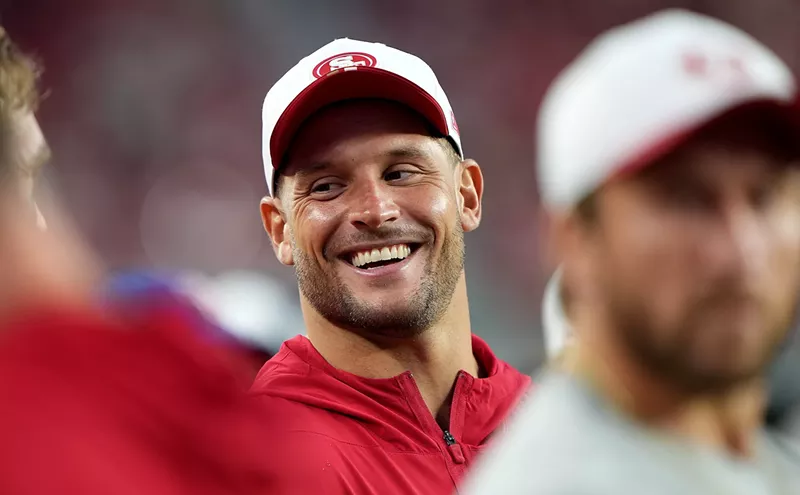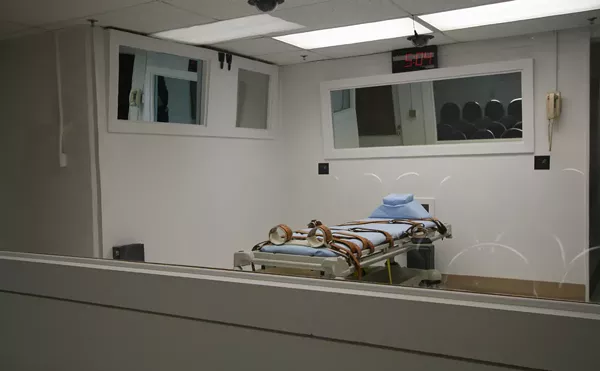Update 4/5: Chief Gary Eugene also confirms that investigators have a second, so far publicly unseen video of the shooting.
Moments before North Miami Police Officer Jonathan
After the shooting, an assistant chief repeatedly lied to the police chief, and City Manager Larry Spring ignored vital evidence.
Moreover, the crime scene was mismanaged, and the police department and city government were in disarray and plagued by infighting.
Those are among the stunning revelations in an
The shooting of Kinsey, who was caring for an autistic man, became a national flash point in the Black Lives Matter movement thanks to cell-phone footage that showed him with his arms in the air while, lying on the ground, and begging police not to shoot just before he was hit in the leg.
The revelations in Chief Eugene's interview raise a burning question: Eight months after the shooting and four months after state investigators closed their probe, why has Miami-Dade State Attorney Katherine Fernandez Rundle still not charged anyone involved?
"We are very close to coming to a decision," says Ed Griffith, a spokesperson for Rundle's office.
"It's pretty damning what's
After the shooting, union officials justified
"I heard the shooter, Officer
Eugene's description comes in an hourlong interview that centers on the bizarre aftermath of the case. He doesn't pull punches about the state of the department. Eugene, a veteran City of Miami cop who had been sworn in as chief only six days before the Kinsey shooting, says training was lax and infighting rampant.
"The scene was a mess, to be honest with you," he told investigators of the Kinsey shooting. "People were walking all over the place. Thank God [Kinsey] did not die. I realized I have a problem with the training of my staff. We're talking about some 15- or 16-year veterans, but in North Miami, a 15- or 16-year veteran may have less experience than a two-year cop in Miami."
Fights in the department were so bad, Eugene said, that he worried his cops wouldn't even be willing to protect one another, much less the community.
"I'm afraid one of them will get shot, for God's sake, and someone will call for backup and they'll say, 'I'm not going,' just to tell you how much the animosity is," he said.
Much of Eugene's interview revolves around the suspension of
Three days after Kinsey's shooting, North Miami city officials held a news conference announcing that, in addition to suspending
But Eugene tells a very different story in his interview. He says
Eugene said the trouble began July 21, three days after the shooting. That's when Juriga came to his office to tell him that
Eugene said he immediately went to Spring and City Attorney Jeff Cazeau with the information. They all agreed to suspend
The audiotape, indeed, showed
"I heard the sergeant, who advised earlier that it was a toy, say, 'Hold fire! Hold fire! It was a toy,' trying to stop whoever was doing the shooting," Eugene said. "I said, 'Oh Lord.'"
The next morning, Eugene said, he went to Spring's office with the tape to ask the city manager not to suspend
"I said, 'City Manager, I'm telling you, listen to this CD and make a decision based on this CD,'" Eugene said. "[Spring] slapped his hand on the desk and said, 'You don't understand what I'm telling you. Get control of your people!'"
Eugene said he nearly quit on the spot. "To be honest, I came close, I nearly let him know that I was about to resign."
Instead, he reviewed department rules and realized that Spring could suspend
That wasn't the only disturbing thing the chief learned. Eugene said he soon found that before
Eugene said the whole incident was a wake-up call to him about bad training in the department. He reiterated that the Kinsey crime scene was one of the worst managed he'd ever seen. "The scene wasn't well prepared. There was no inner perimeter, no outer perimeter, no media staging area, nothing," he said. When he arrived on the scene, no one briefed him about what had occurred.
"I would say this brings a lot of light on how the city manager and city attorney dealt with the situation. This was political, about PR, rather than finding out what happened," Joseph says. "The chief is in a very precarious spot.













